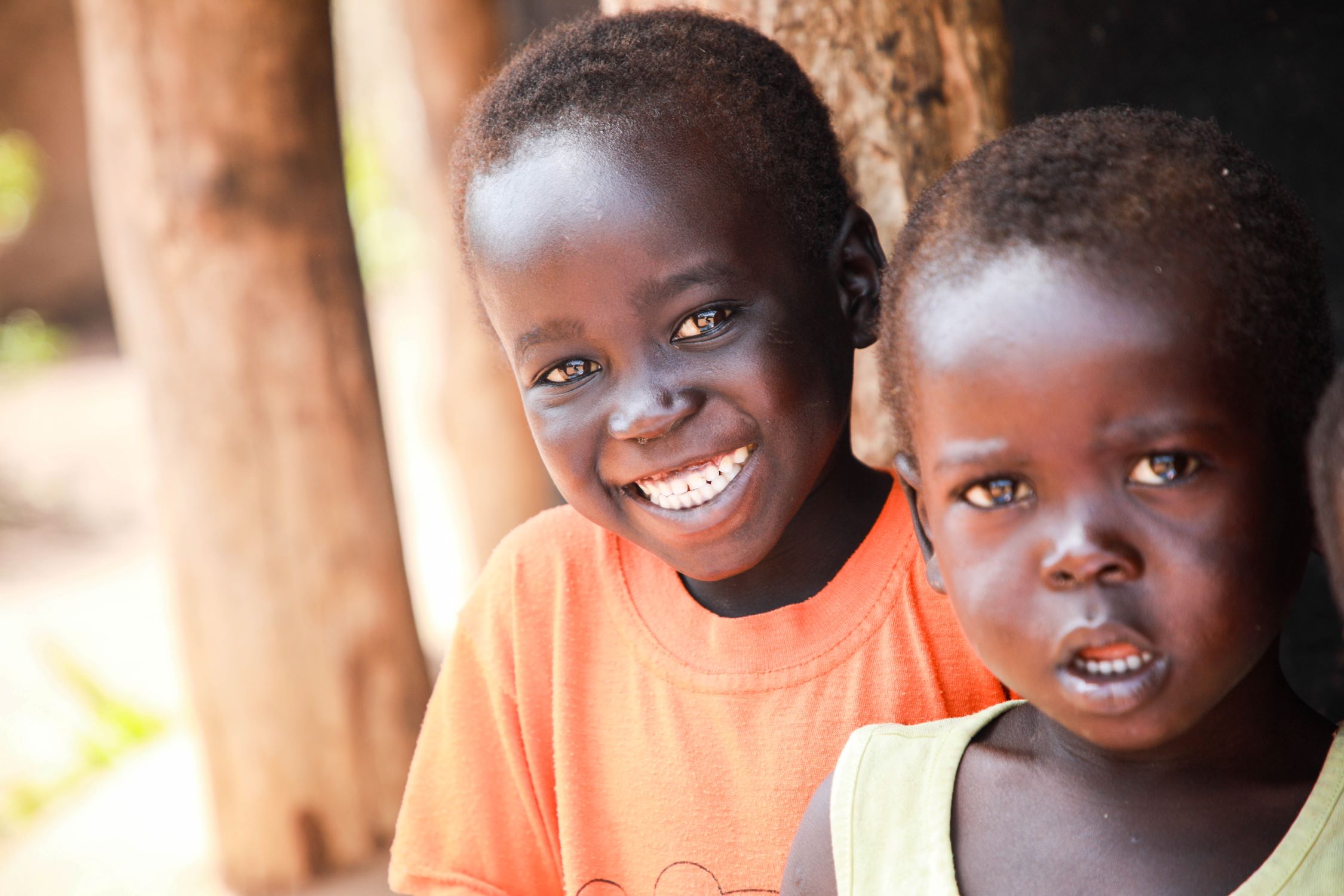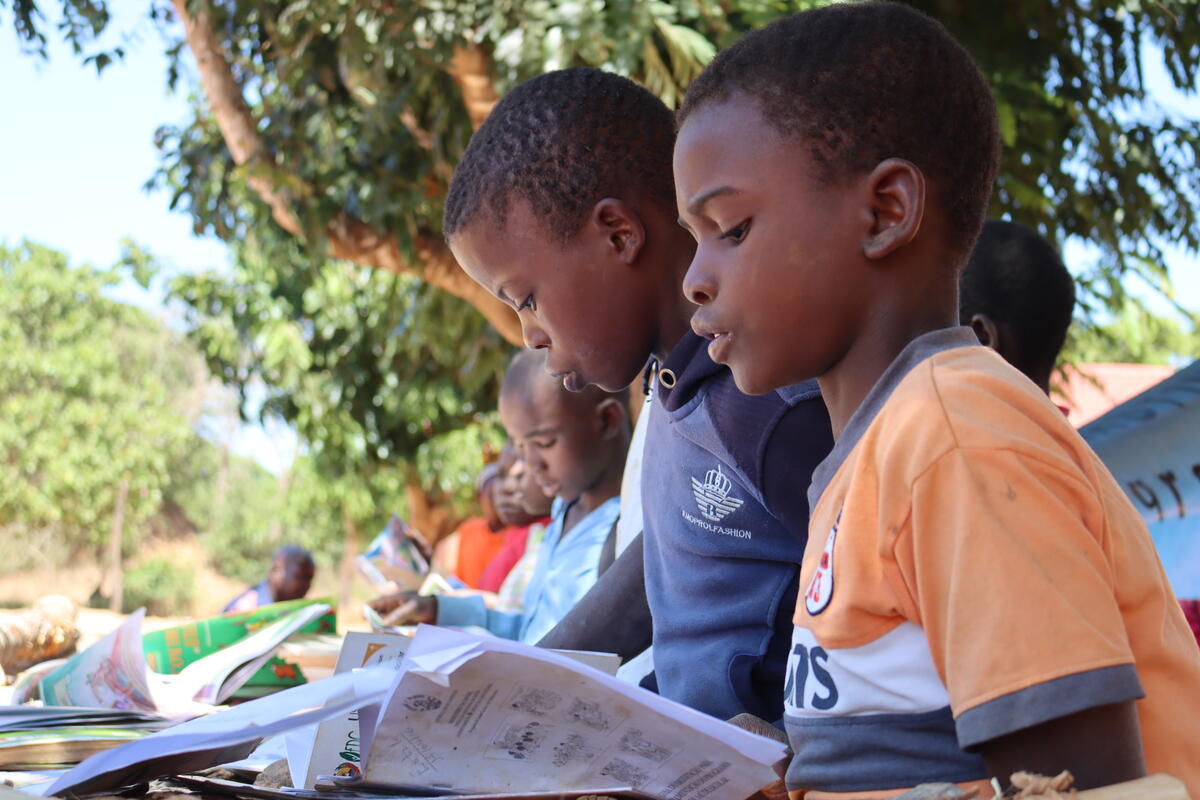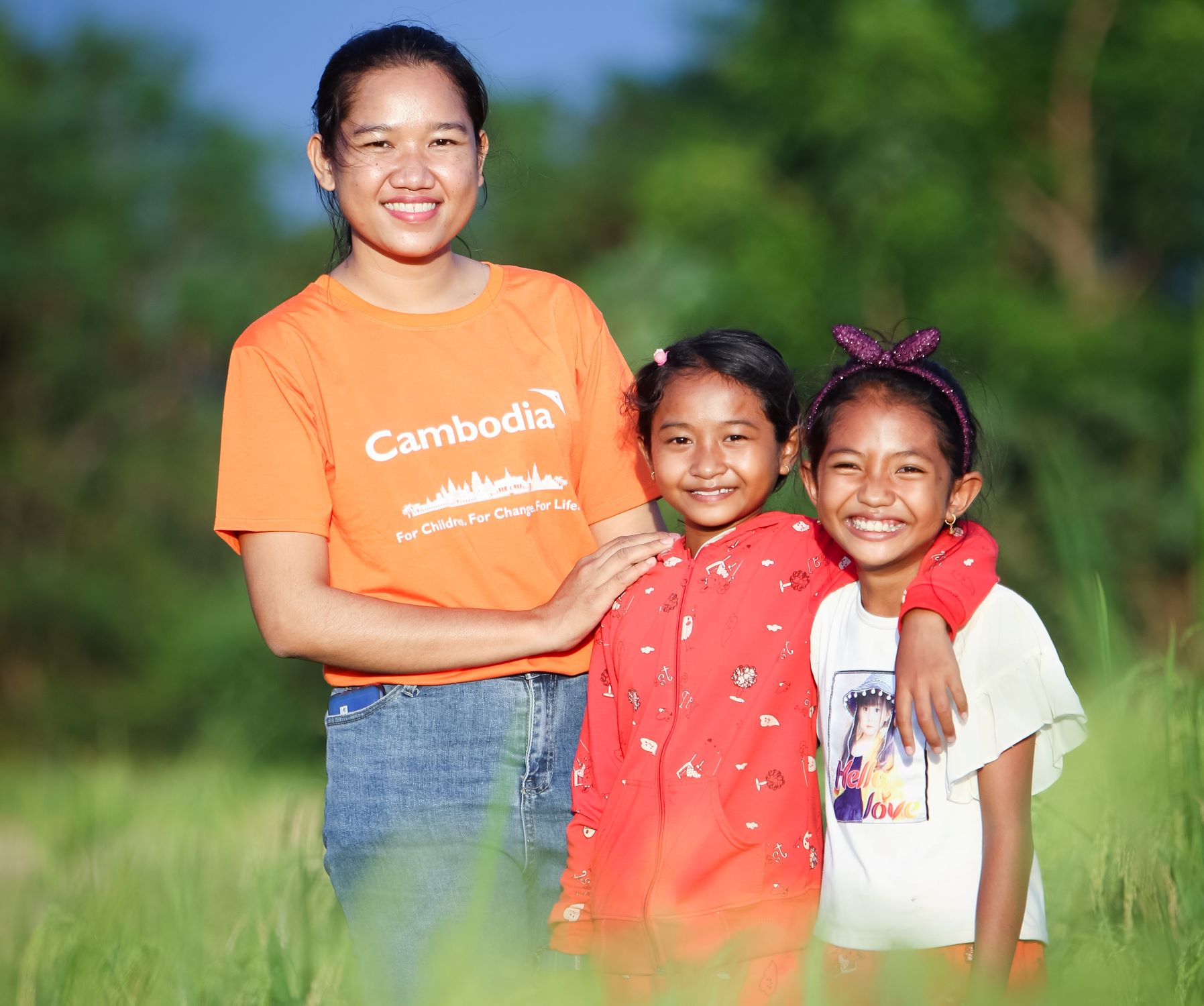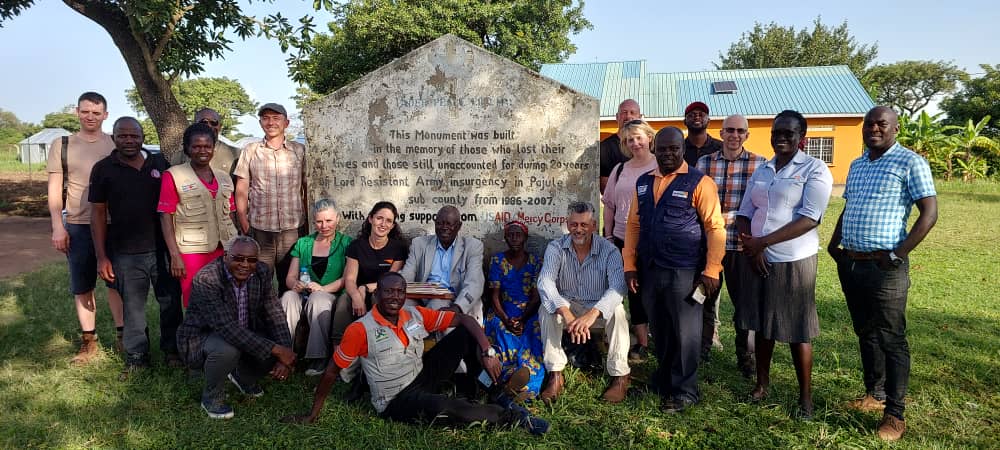
Uganda Revisited
“I expected to see sadness and deprivation; all I see is so much joy and hope.”
Photo above: Matt (right, sitting down, striped shirt) with UK visitors and local Ugandans in front of the memorial for those affected by the LRA conflict.
by Matt Hyam, World Vision UK Church Specialist
Remember fidget spinners? We had several in our house (we still have parts of several scattered around our house now). No matter how many different angles you looked at them from, they still only did one thing.
In September 2022 I visited our work in Northern Uganda with a team from various World Vision offices. In June 2023 I took eight guests (and three World Vision staff) on a trip to see what I had seen then. In my mind, I was there to show them what I had seen so that they could be similarly captivated by it.
However, it turns out that the work in Pajule is not a fidget spinner!
I can honestly say that I learned as much on this trip as on the last, and that it impacted me every bit as much!
“Oh really?” I hear you say, with a mildly dubious tone, “Why was that then?”
Well, I’m glad you asked!
We had four whole days in Pajule this time, so were able to see things with so much more depth than I did before. If we ignore that it was four days without hot water - or sometimes water at all - showering under a cold dribble, and (horror of horrors) no WiFi, the trip was actually… mind-blowing.
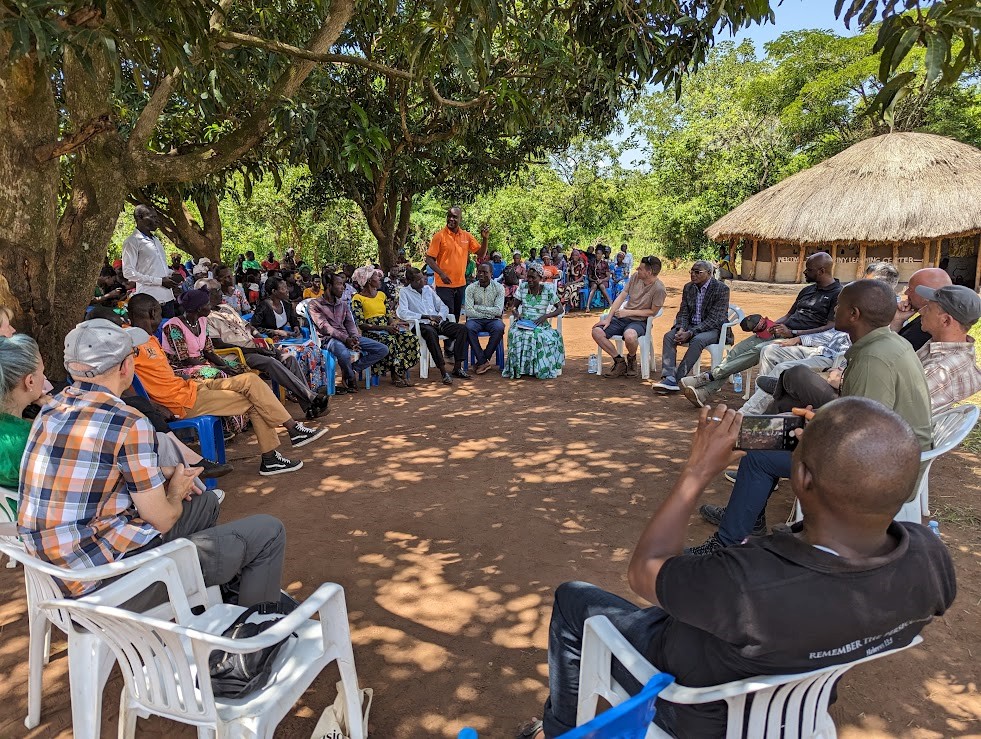
Church - but not as we know it!
On the first full day we spent three hours with local pastors finding out about the impact of World Vision. We met with around a dozen or more leaders – Catholic, Anglican, Pentecostal and Baptist. What began to emerge was a picture of church unity, the like of which I have never seen. Here was a group of churches who genuinely work together, who have formed an official group representing all the churches and who want to push on beyond what anyone (even among the Ugandan World Vision staff) has seen before.
This is a group of leaders who support, help, serve each other and each other’s communities and congregations, speak in one another’s churches, save together to buy a tractor for the whole community, hold each other to account and being genuine brothers to each other.
Every one of these pastors cite World Vision as the reason for this unity. We deliver a lot of our training through the churches, and they host the community events we’re involved in. The leaders told us that whenever World Vision does some training with them, they gather together afterwards, as faith leaders, and work out how they can teach their people in a consistent, unified way, before they will ever seek to do anything. This pattern of working it out together was a clearly a priority in all that they did.
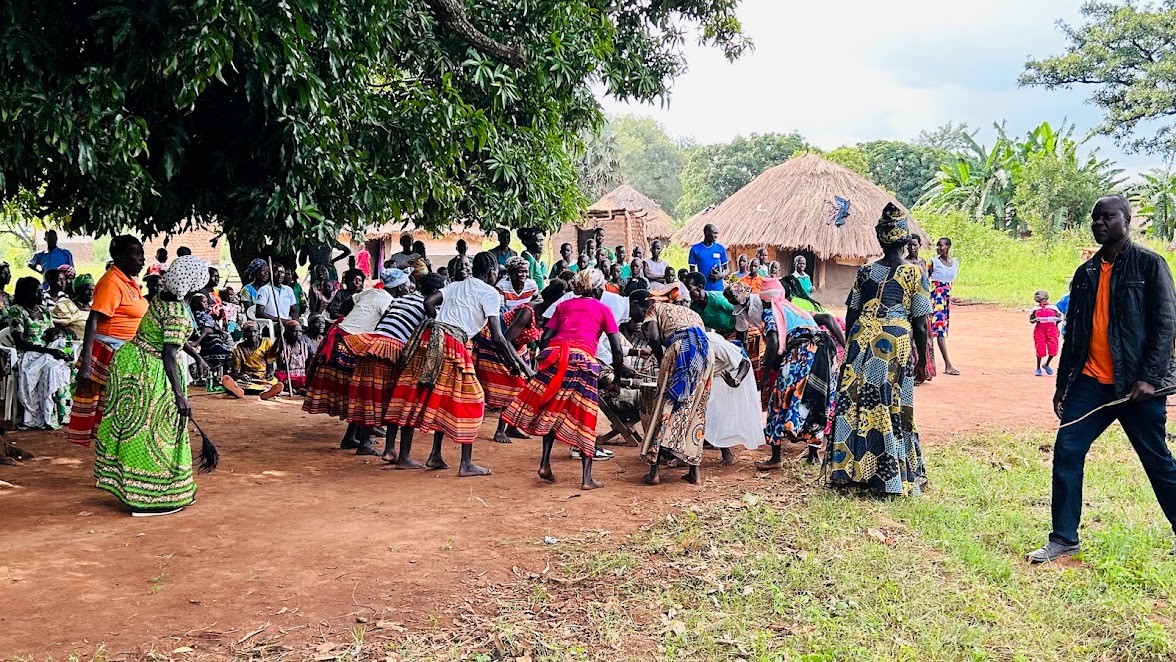
“I do not know how to communicate this!”
The next day we visited a cluster: a group of 20-30 households who live as a community together.
As with everywhere, we were greeted with dancing and singing. Obviously, being good sports, we joined in, and “danced like John Travolta (now).” We were not at all embarrassing! (We were).
We met the cluster council, chosen by the community to look after health, education, safeguarding, finances, planning etc. We heard how World Vision trains and equips them for long-term sustainability, helping them to save for the future, investing in things that totally transform the community.
Each cluster has two government licensed health workers, to diagnose and treat malaria, pneumonia and diarrhoea. These three are the biggest killers of children in Uganda, so by having the skills and medicine available within the cluster means that infant mortality is massively reduced.
All the children receive extra education in the learning centres built in each cluster, so that by the time any child starts school, they can already spell their name, and then, once they are at school, they still have two hours a week extra teaching.
We heard how, during the pandemic, because they could not go to the market, the cluster really stepped up, growing their own food - and actually had more food than they could eat! Also, how the men, being at home all the time, began to help around the homes, rather than expecting the women to do everything.
This cluster was only two years old but we heard about a cluster down the road which was five years old and was now at a place of such self-sufficiency that World Vision staff can step back and monitor rather than be actively involved. In fact, this cluster is now training and supporting other clusters!
As we came to a close, the dancing started again, and one of the UK pastors turned to me and said, “I don’t even know how to communicate what I am seeing. I expected to see sadness and deprivation, but all I see is so much joy and hope.”
This was all the more poignant because of what we learnt next…
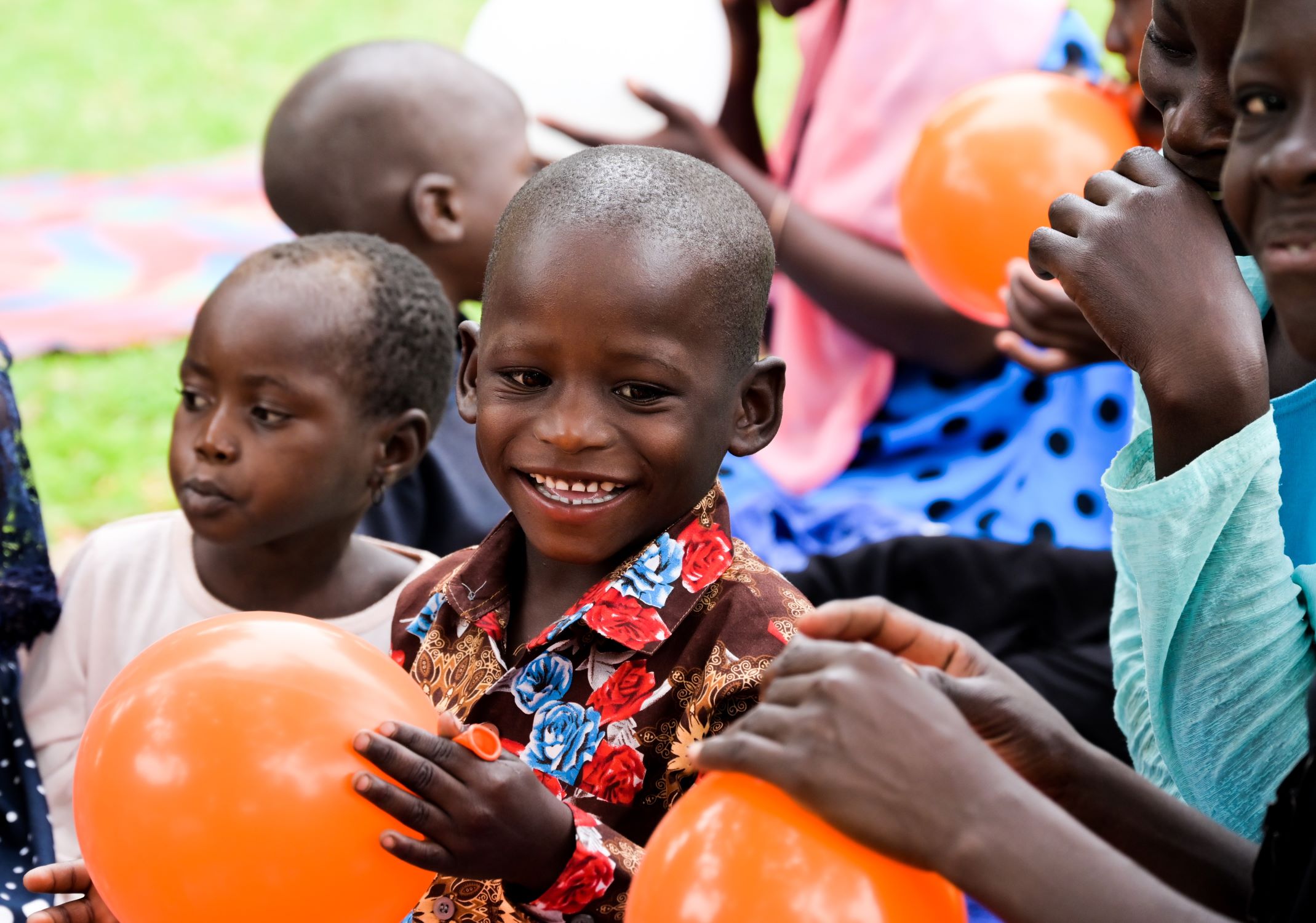
War stories
For twenty years, Northern Uganda was ravaged by conflict with the Lord’s Resistance Army (LRA). People were murdered, raped, and abducted. Pajule was destroyed, the entire region reduced to a shell of what it had been.
We met two beautiful survivors of that war. It was heart-breaking. With tears in their eyes, reliving the trauma, they told us horrific stories, which I will not recount. One told us that her son was abducted 20 years ago, and, like so many, to this day has never been found. They told us that everyone lived in refugee camps, run by World Vision and other aid agencies. Anyone outside them would be killed.
Every parent we met in Pajule was raised (and likely born) in a refugee camp.
Among those parents are people who were abducted as children and forced to fight in the LRA. World Vision ran trauma camps for those child soldiers. The last one only closed about two years ago.
They told us about life after the war ended in 2008. The collective spirit of the people was broken. So utterly traumatised that they could barely exist. The suicide rate was sky-high. For years afterwards, people just existed, walking with heads down in a daze: they would not even move out of the way of a car because they did not value life at all, having nothing to live for.
So, when we hear about the unbridled joy and hope in that cluster, we have to put it in the context of just how utterly hopeless life was, less than a decade ago!
Choosing party
With Chosen the child chooses the sponsor and this takes place at a Choosing party. We had the astonishing privilege of being at one.
Every month, there is an event in each community within the project, hosted by one of the churches, featuring Bible teaching, games, dancing (obviously), training in health and safety, safeguarding, nutrition. It’s also an opportunity for health professionals to give immunisations to all the children, and set up health records for them.
Every so often, one of these community events will include the Choosing party. Children will go into a small marquee (usually dancing all the way), and choose from an array of profiles hanging on a line who they want to be their friend. They then come out (again, dancing) and tell World Vision staff why they chose that person/family, and have a photograph taken with the picture they chose.
What a beautiful, beautiful thing. The parents, the church, the children, the staff all together in a totally holistic day of celebration, learning, teaching, medicine, games, dancing and choosing friends who will help this ongoing work transform and equip Pajule for the next and future generations!
What did we learn?
Everything that World Vision does is about removing dependency and enabling the communities to move forward on their own. This is the antithesis of colonialism. This is giving communities back dignity and power. This is not a sticking plaster. This is not creating dependency. This is joy and hope and sustainability.
This is taking a community where people have been so broken and crushed that they did not even want to live, seeing it transform into a community so full of joy and hope that it is hard to even begin to describe.
This is not a call to come and help desperate people. This is a call to partner in an incredible work that is beautiful, powerful and astonishingly effective, and raising an entire region out of the ashes into the fullness of life.

